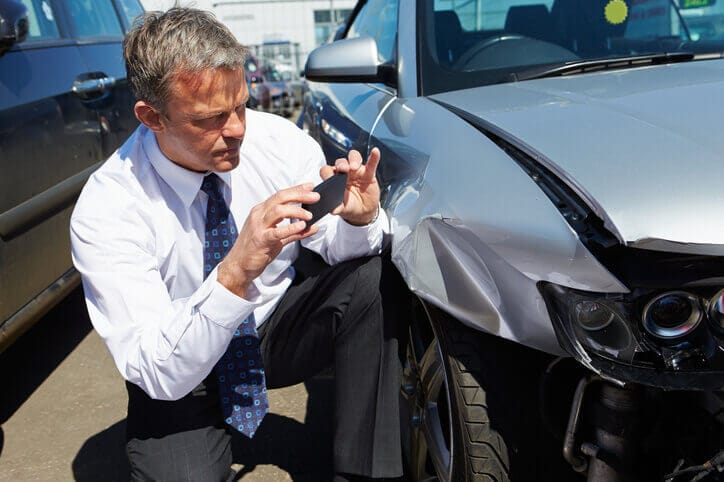No one likes to think about what could happen if they find themselves the victim of a car accident. However, although it may be unpleasant to think about, it’s crucial you do so. This is the only way to ensure you take the necessary steps immediately after the crash. Failing to think and plan ahead could lead to complications should you decide to hire a personal injury attorney and file a claim against the liable party seeking compensation for your damages.
When the time comes, recalling the information outlined in the guide below will have a direct impact on the months of your life immediately following the crash. So, stay calm, stay focused, and keep the tips below in the back of your mind.
Securing Your Right to File a Claim: Follow These 5 Steps Immediately After a Car Accident
1. Evaluate Yourself & Others
As soon as you realize you’ve been in a crash, stop the car and perform a quick self-evaluation. Look for any serious injuries, extreme pain, confusion, or dizziness. As soon as you’re done, stop and do the same for any other passengers in your vehicle. Once you’re sure you and your passengers aren’t in any immediate danger, you can exit the vehicle (but only when it is safe to do so).
Quickly check on the other driver and their passengers to ensure they aren’t in any immediate danger, either. If everyone is okay, pull the car off to the side of the road. Be sure not to leave or distance yourself from the scene; instead, simply get your vehicle out of the flow of traffic to ensure you and other drivers remain safe in the interim.
2. Call 911
Once you’ve confirmed your vehicle isn’t in the way of traffic, get back in the car and call 911. Explain that you’ve been involved in an accident and ask for a police officer to report to the scene. Provide as much information as possible about where the crash occurred, where your vehicle is currently situated (as well as the other party’s vehicle), and a brief explanation of everyone’s physical and mental state.
3. Document the Damage
After confirming a police officer will be arriving shortly, you’ll want to start documenting the crash. Start with any obviously present injuries on yourself or your passengers. Take pictures of the injuries, and keep a log in your phone of how you’re feeling at that moment.
Then, get out and evaluate your car. Take pictures of any damage, as well as a video of the vehicle as a whole. Once you’ve fully documented your vehicle, approach the other driver, and let them know you’re going to take pictures and a video of their car as well.
Once you’ve fully documented both vehicles, focus on your surroundings. If there’s any property damage around you, take pictures and notes of where they are and what they entail. You’ll want to do the same for any traffic signs, markings, or lights. Take note of what they say or mean. You should also note where they were in relation to the direction you and the other party were moving in, the scene of the crash, and whether it’s immediately apparent based on those signs whether one of you violated a traffic ordinance.
4. Give the Police Officer Your Statement
At this point, the police officer should arrive at the scene of the crash. Once they get there, they’ll likely notify you and any other parties involved that they’re going to gather some information and collect official statements. This step is absolutely crucial, as this is what’s going to inform the officer of who they believe was at fault, as well as what caused the accident to occur. This information will later be noted in an official statement, which will likely be called into question during the personal injury claim proceedings.
While the officer is preparing, gather your insurance, license, and registration. After they take note of your documents, they’ll ask you to explain what happened. During this time, be very careful with your words. Even saying something as minor as, “They came from out of nowhere,” could make it seem like you were distracted behind the wheel, which could be considered libelous.
5. Request Medical Attention
At some point during their interaction with you, the police officer will likely ask whether you think you need medical attention. Even if you feel fine, you should say yes. This is crucial because in most cases, injuries from a car accident take a while to present and make themselves known. Whiplash, for example, often isn’t obvious until at least 24 hours after the crash.
Medical professionals can typically diagnose injuries even when they aren’t outwardly apparent, which will ensure you get the care you need as soon as possible. Furthermore, you’re going to need proof that you were seen by a doctor if you decide to move forward filing a personal injury claim. The insurance company will want to know that any injuries reported in your claim were directly related to the accident (and not caused by an unrelated experience). A medical report from the day of the crash will help prove why you are deserving of compensation from the other party.
Moving Forward Filing a Personal Injury Claim
Once you’ve followed the steps outlined above, you need to focus your efforts on finding a personal injury attorney to represent you in the upcoming proceedings. You’ll likely start hearing from the other party’s insurance company almost immediately after the accident, so it’s crucial you secure an attorney as soon as possible. Once you do, they’ll handle all communications on your behalf to ensure nothing gets in the way of your ability to file a claim.
They’ll also help you determine how much your claim is actually worth. This is important because insurance companies often try to get accident victims to settle for less than what they deserve. With your attorney’s help, you’ll get through the legal proceedings without any trouble, so you can focus on recovering.








